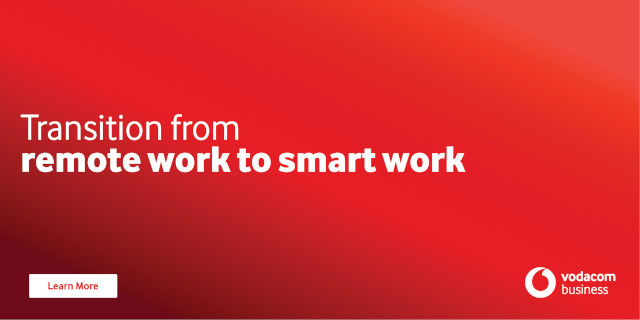Knowing who to trust: Three non-negotiable areas of the network security industry
By Industry Contributor 26 February 2024 | Categories: news
News sponsored by Vodacom Transformation of Work:
By Rudie Opperman, Manager for Engineering & Training, Middle East and Africa at Axis Communications
With South Africa facing security challenges from several fronts, trust has never been more important. In addition to national statistics that paint a concerning picture of crime with serious economic consequences – the World Bank estimates crime costs South Africa’s economy at least 10% of GDP annually – the country also has to fend off attacks from cybercriminals who seek to exploit vulnerabilities in both people and businesses. Organisations must therefore have faith in the security products and solutions they deploy to mitigate these threats. But, in this day and age, is that even possible?
From a technology perspective, trust primarily relates to cybersecurity and privacy, to having confidence in the security products and solutions you purchase; that they, and the data they gather and process, are secure from threat actors. While that is true, enterprises need to go an extra step in the name of security and ensure that everything, from the suppliers they work with to the devices they invest in, exhibits the resilience and value offering that promises peace of mind.
When it comes to having trust in network security, there are three areas in which enterprises should never make concessions.
The supply chain
Regardless of what your business function or industry is, the security of your organisation’s supply chain is critical for maintaining operational continuity. We have witnessed the consequences of supply chain disruptions around the world where a single point of failure, a weak link in the chain, can bring business activity to a dead halt. Furthermore, a lack of due diligence can potentially undermine organisational objectives. For instance, when a supplier is not adhering to ethical standards or obligations, it can potentially result in damage to the organisation’s reputation.
In the case of network security solutions, the situation is no different. Businesses need to source products from suppliers that work with trusted partners and undertake rigorous evaluation processes to determine whether those partners can be trusted. This can cover everything from where components are manufactured and sourced to the parties involved in the manufacturing process, quality control, and inventory handling and management. Simply put, companies should ideally have oversight of the product before they take delivery, or at least prioritise suppliers that have sufficient supply chain governance frameworks in place.
The product itself
Threat actors are always on the lookout for any vulnerability that serves as the gateway into enterprises’ systems, and that includes the physical devices themselves. That is why organisations should invest in security products that offer built-in cybersecurity features and can be part of a greater network without compromising it.
For example, let’s look at Edge Vault, Axis’s hardware-based platform that protects devices and ensures secure operations from the moment the device is installed and integrated into your network. Edge Vault lets organisations confirm the authenticity of an Axis product, reduces its deployment time through automated controls, and utilises cryptographic computing modules to protect sensitive data from unauthorised users. Meanwhile, on the software side of things, a secure boot process ensures the product only runs signed firmware i.e. firmware implemented by Axis.
The truth is that even though organisations may be worried about upgrades impacting system stability, a lack of firmware maintenance means they can be left exposed to vulnerabilities that may manifest long after the initial purchase. By taking advantage of long-term support (LTS) for firmware, security products remain protected over time with no impact on their functionality.
Future innovation
As in every industry, artificial intelligence (AI) is starting to play a significant role in security. Not just in the introduction of new AI-driven technologies, but also in the augmenting of existing technologies. Video surveillance coupled with AI analytics can help enterprises gather intelligence through information capture and analysis. How many people enter or leave a monitored location, how much inventory is stocked, there are multiple use cases where AI-enhanced video monitoring unlocks new value for South African companies.
At the same time, anything AI-related demands enterprises step up their security practices in terms of networks and data. Criminals are already utilising AI to carry out their attacks and so enterprises must keep up. It’s important to utilise AI to bolster cybersecurity, while also ensuring the cybersecurity of the AI solutions that are developed and deployed.
Any future innovation must be accompanied by full security considerations, regardless of whether it’s network security or not. To that end, enterprises need to work with vendors and source products that prioritise security and always look at what comes next. By taking the same stance, enterprises can reflect a level of resilience that makes them leaders in their own industries.
Most Read Articles

Have Your Say
What new tech or developments are you most anticipating this year?




